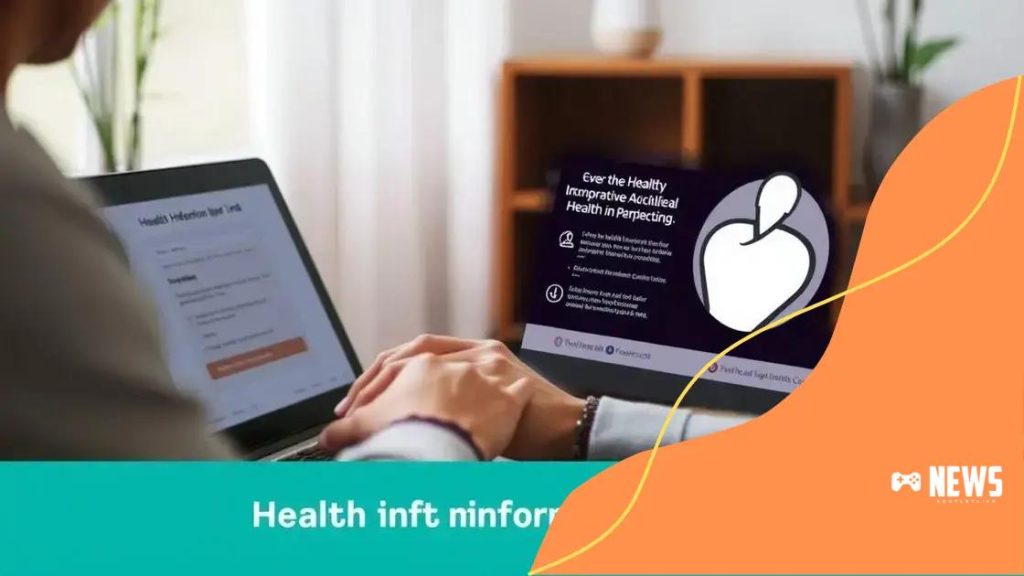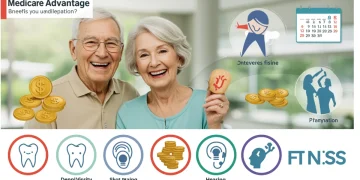Online access to health aid: discover its benefits now

Online access to health aid enhances convenience and efficiency, providing users with immediate access to medical information and services while ensuring personalized care through advancements in technology.
Online access to health aid is transforming the way we manage our health. Have you ever wondered how technology brings medical support closer to you? In this article, we’ll uncover the many aspects of this accessible health service.
Understanding online health aid services
Online health aid services have changed how we approach healthcare. With a few clicks, you can access critical resources to support your well-being. This ease of access allows people to find information quickly and connect with professionals in real time.
What are online health aid services?
These services include various platforms, such as telemedicine, health apps, and online support communities. They aim to provide individuals with easy access to medical advice, treatment options, and health education.
Benefits of using online health aid services
Some advantages are:
- Convenience: Access services from anywhere at any time.
- Cost-effective: Often, services are cheaper than traditional in-person visits.
- Variety of options: Choose from various platforms that cater to different needs.
- Anonymity: Many people feel more comfortable discussing sensitive issues online.
As technology evolves, so do these online aid services, improving their offerings. Users can now expect faster responses and more personalized care. You can even find specialized resources that meet your individual health needs, such as chronic condition management or mental health support.
Some platforms also integrate with wearable technology, allowing you to track health metrics and share them with providers seamlessly. This integration makes it easier to monitor progress and adjust treatment plans as necessary. When it comes to your health, it’s important to make informed decisions, and online health services provide a wealth of information at your fingertips.
In the vast realm of online health aid services, it’s crucial to identify credible sources. Look for platforms that offer verified medical advice backed by experienced professionals. Doing so ensures that the information you receive is both reliable and valuable.
The benefits of online access to health aid
Finding online access to health aid can significantly improve your health management. This access allows individuals to utilize resources that were once hard to reach, especially for those with busy schedules.
Improved Accessibility
One major benefit is that health aid is available 24/7. You can get medical advice whenever you need it, without waiting for an appointment. This is particularly helpful for non-emergency questions that can arise at any time.
Cost Savings
Using online health resources often saves you money. Many services are more affordable than traditional visits and can be covered by insurances. The possibility of avoiding unnecessary trips to the doctor’s office means you can also cut down on travel expenses.
- Reduced costs: Many services come with lower fees.
- No additional travel: Save money on gas or public transport.
- Insurance coverage: Some online services work closely with insurance providers.
Another important aspect is the abundance of information. Online platforms offer access to articles, videos, and expert discussions that can educate and empower you to take charge of your well-being. With so many resources available, exploring different health topics has never been easier.
Furthermore, people often feel more comfortable discussing personal issues online. This comfort can lead to more honest conversations with healthcare providers who may better understand your concerns.
Lastly, online health aid often includes follow-up resources to help you stay on track. Many services provide reminders and checklists to guide you through treatment plans, ensuring you meet your health goals effectively.
How to securely access health aid online

Accessing health aid online is convenient, but knowing how to do it securely is crucial. Many people wonder about the best practices to ensure their information stays safe while seeking medical help online.
Use Trusted Websites
Always seek services from reputable websites. Look for those that use secure encryption, such as HTTPS, which protects your data during communication. Make sure the site has clear information about its privacy policies and data usage.
Create Strong Passwords
One of the simplest ways to enhance your security is by creating strong passwords. Use a mix of letters, numbers, and symbols to create a unique password. Change passwords regularly and never share them with anyone.
- Use a password manager: These tools can help you create and store complex passwords safely.
- Enable two-factor authentication: This adds an extra layer of protection to your accounts.
- Be cautious with public Wi-Fi: Avoid accessing sensitive health information when connected to public networks.
Understanding how to keep your devices safe is also vital. Install reliable security software to protect against viruses and malware that could compromise your data. Regular updates for your operating system and applications help keep your defenses strong.
Additionally, be aware of phishing attempts. Cybercriminals may try to trick you into providing personal information. Always verify the source of emails or messages before clicking on links. If something seems off, it’s best to double-check.
Using online health services effectively means being proactive about your online safety. Keeping your health information secure ensures a better experience while accessing the help you need.
Challenges of using online health resources
While there are numerous benefits to using online health resources, challenges also exist. Many individuals encounter difficulties that can affect their experience and effectiveness when seeking medical information online.
Information Overload
One major challenge is the sheer volume of information available. With countless websites and sources, it can be difficult to find reliable and accurate details. Users may feel overwhelmed and unsure which resources to trust, leading to confusion.
Quality of Information
Not all online health resources are created equal. Some may provide outdated or inaccurate information, which can be harmful. It’s essential to critically assess sources before relying on them for health decisions.
- Verify the credentials: Check if the information comes from qualified healthcare professionals.
- Look for recent updates: Ensure the content is current and relevant.
- Trust reputable organizations: Use well-known medical institutions or government health sites.
Another issue is privacy concerns. Users might hesitate to share their health information online for fear of data breaches. Protecting personal health data is crucial, and individuals should be aware of how their information is used and stored.
Accessibility can also pose problems. While online health resources aim to provide support, not everyone has equal access to the internet. Individuals in rural areas or those lacking technological skills may struggle to benefit from these services.
Lastly, online consultations can miss the personal touch of face-to-face interactions. Some patients may feel uncomfortable discussing sensitive health issues without the presence of a medical professional. Building trust can be more challenging in virtual environments.
Future trends in health aid accessibility
As technology evolves, the future of health aid accessibility looks promising. Innovations are making it easier for people to find and use health resources online. Many exciting trends are shaping the way we access health information and services.
Telehealth Advancements
The rise of telehealth is a game changer. More healthcare professionals are using video calls and digital platforms to reach patients. This makes it simpler for individuals to receive care from the comfort of their homes.
Artificial Intelligence in Health
Artificial intelligence (AI) is becoming an essential tool in healthcare. AI can help analyze patient data and provide tailored health advice. This technology improves the speed and accuracy of diagnoses, making health aid more efficient.
- Chatbots: AI-driven chatbots can assist users with common health queries at any time.
- Predictive analytics: AI can identify health risks based on user data, allowing for proactive care.
- Personalized treatment: Tailoring treatments to individual needs can lead to better outcomes.
Mobile health apps are also gaining popularity. These applications provide a wide range of services, from fitness tracking to medication reminders. As smartphones become more common, these apps help people manage their health more effectively.
Moreover, we will see increased emphasis on patient-centered care. Health systems are focusing more on the needs and preferences of patients. This shift ensures that individuals feel heard and valued in their healthcare journeys.
Finally, enhanced policies and regulations aim to improve access for all individuals. Governments are working to remove barriers to online health aid, making services more inclusive for everyone, regardless of location or circumstance.
In conclusion, online access to health aid offers many advantages while also presenting some challenges. As technology continues to advance, the future of health aid accessibility will see even more improvements. With telehealth services, AI capabilities, and mobile health apps, getting the care you need is becoming easier and more personalized. It is essential to be aware of the potential challenges, such as information overload and privacy concerns, but by staying informed and using reputable sources, you can effectively navigate this new landscape. Embracing these changes can lead to better health outcomes for everyone.
FAQ – Frequently Asked Questions about Online Access to Health Aid
What are the main benefits of online health aid?
Online health aid offers convenient access to medical information and services, allowing you to manage your health from home.
How can I ensure my health information is secure online?
Always use trusted websites, create strong passwords, and enable two-factor authentication to protect your health data.
What challenges might I face when using online health resources?
You may encounter information overload, concerns about the quality of information, and difficulties with internet access.
What future trends can we expect in health aid accessibility?
Expect advancements in telehealth, increased use of AI technology, and enhanced policies to improve access for everyone.





